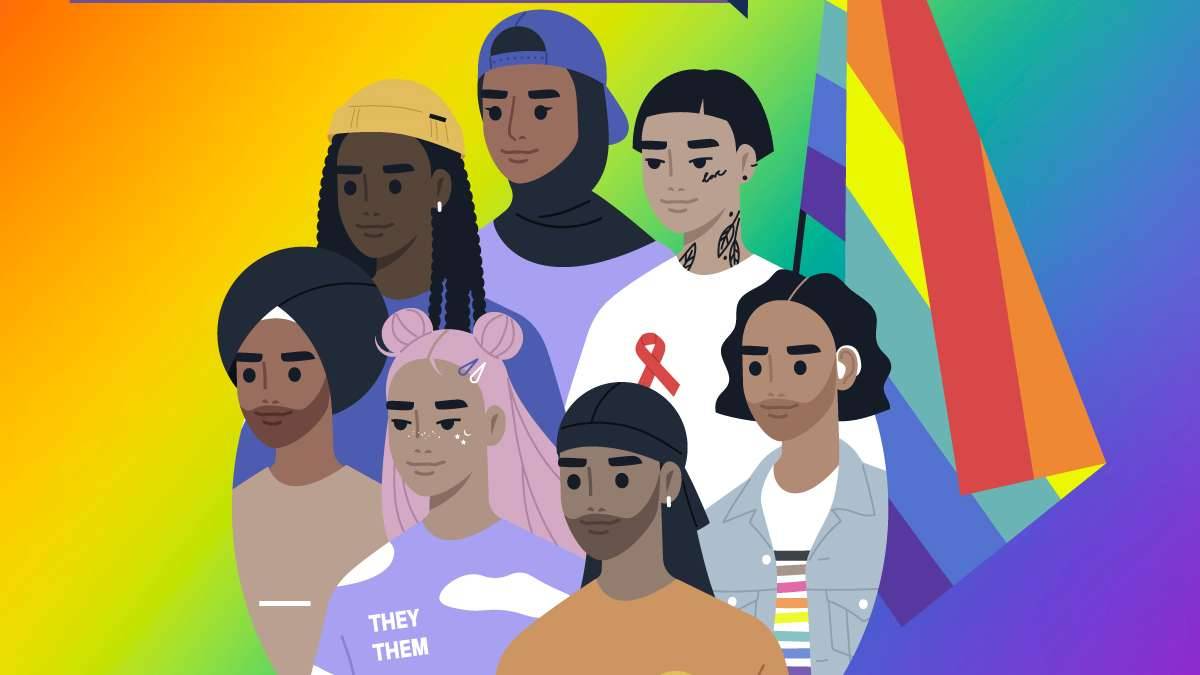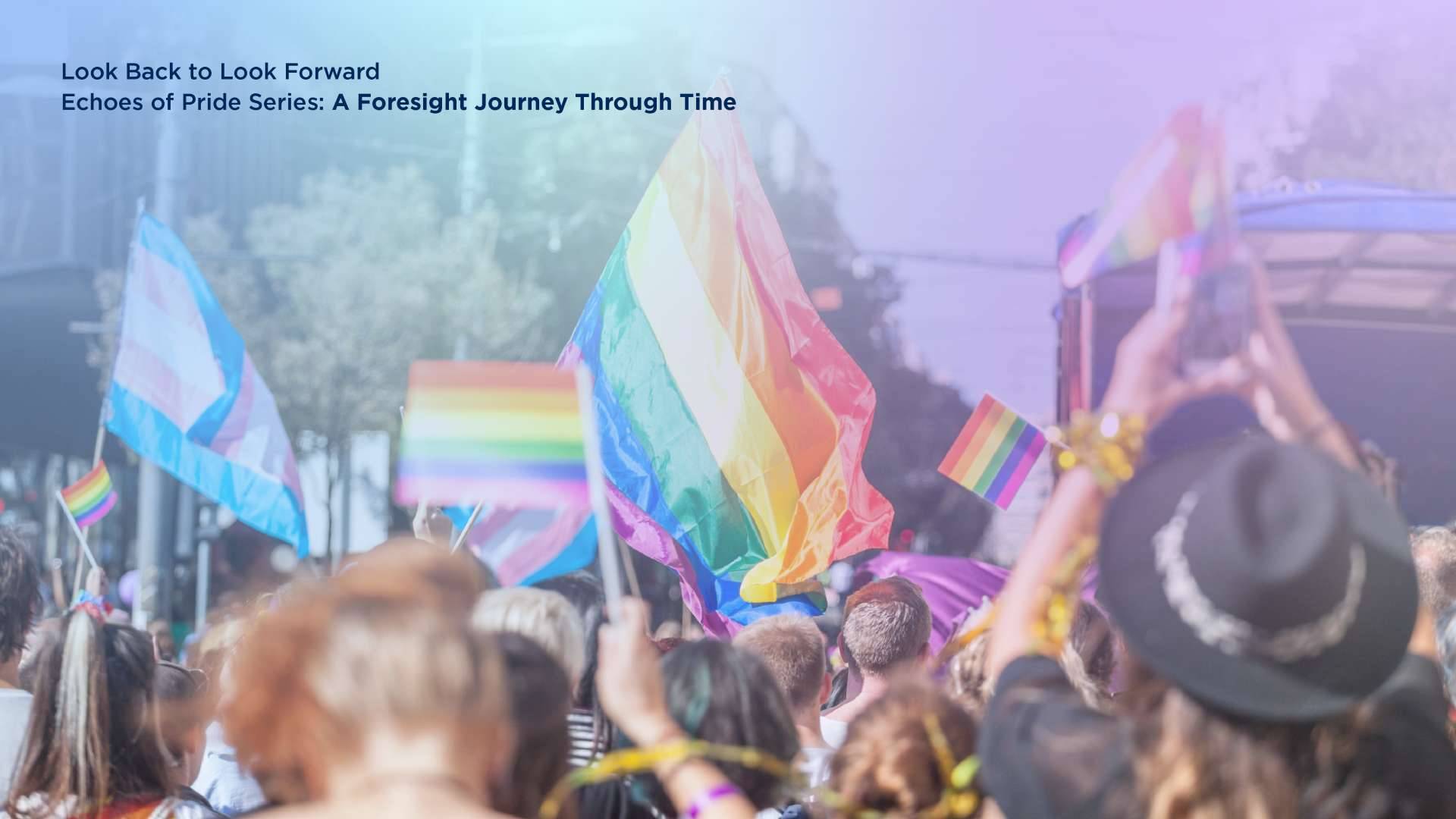
Gen Z and the month of Pride
ARTICLES | Jun 04, 2022
Writer: Nuttawut Kulkaew
Editor: Wittaya Wonglor
The 2021 survey estimates that there are more than 371 million LGBTQ+ people worldwide (about 5% of the global population)
The 2021 survey estimates that there are more than 371 million LGBTQ+ people worldwide (about 5% of the global population), with almost a third (32%) of Gen Z or those born during 1997 - 2010 (ages 12 - 25) expose themselves as a queer. They think it is acceptable to see LGBTQ+ love stories in the mainstream media. In developmental psychology, early adulthood (18-25 years) is a period of self-exploration, especially in the dimension of love, possibilities, and change. Moreover, teenagers (12 - 18 years) are the ages of self-discovery. This is consistent with the consumer behavior of Gen Z, who tend to support brands with the same beliefs and visions with them. These traits result in the Gen Z being a critical group to play a role in the issue of gender diversity in many dimensions.
• Social and value aspects in affecting politics and law: Gen Z and Y have been key drivers for gender equality. Almost all of the people who signed up to push for amendments to Section 1448 of the Civil and Commercial Code or the adoption of the Marriage Equality Act were Gen Z and Gen Y (90.0%). They also use social platforms for political purposes through creativity and awareness of viral marketing. This can be seen in 2021, When Harry met Santa advert poll, whether it is acceptable for Santa Claus to be gay. The result concluded that most Gen Z (60%) agreed, while most older people clearly did not.
• Economic: Gen Z were among the first to raise questions about the Pink/Rainbow economy, the market for Pride which targets LGBTQ+ customers to generate sales of goods and services, such as a brand promoting gender equality in the period of time or a brand that sells goods designed with a rainbow flag that symbolizes the Pride Month.
Indeed, LGBTQ+ people have been increasingly purchasing power consumers over the years, especially in the tourism industry and the merchandise due to the entertainment industry. A study from LGBT Capital reported that tLGBTQ+ consumers generated $790 billion in 2012 to $917 billion in 2016 and $3.9 trillion in 2019. Moreover, Thailand is one country that earns up to 1% of GDP from LGBTQ+ tourists.
It has to be admitted that such marketing is often gained positive engagement, with 78% of LGBT people admitting they are more inclined to support brands that care about LGBT+ markets, with more than half (54%) perceiving a brand's attitude through a brand's social media following.
However, such marketing can cause a wave of backlash and damage the brand's image if they convey the messages of mocking, cynicism, and discrimination toward the LGBTQ+ community. Nearly half (41%) of Gen Z and 1/5 (23%) of Gen Y consider brands' gender discrimination an important issue that affects consumer behavior. More than 50% of consumers expect the brands they buy to provide a tangible contribution to the social issues they care about in a widely recognized and inclusive way.
• Urbanization and Livelihood: Gen Z are no longer satisfied with inclusive cities only for men and women. They demand gender-diverse cities. According to Arup, they outline design ideas for queering public spaces, such as lighting onto environments such as trees or architectural elements to make the city feel more safety, installing lights in shopfronts or on the street to create a sense of community, proper width of street walks and footpaths to reduce crime, establishing of genderless public toilets, creating semi-enclosed pockets in park/cozy corners which LGBTQ+ lovers can express their love to each other, having a permanent cultural heritages demonstrating the embrace of gender diversity which is not just installed in Pride month. In addition, public utilities and services should be designed to accommodate families that are no longer just traditional form of father-mother-children.
Implications for the future:
- Gender fluidity and freedom to love will be the social norm of Gen Z and Y which will be upheld and passed on to the next generation, such as Gen Alpha, resulting in more focus on empathy, trust, and commitment to each relationship.
- Gen Z's social movement needs support from older generations, such as Gen Y, who share similar values but have more life experiences, and Gen X, who overall have more social stability and can be role models for young people.
- Businesses that want to draw themselves closer to consumers need to have a marketing plan in conjunction with the brand positioning and organization's vision on social issues, then taking executions such as experiential marketing or CSR on an issue which should be seriously, continuously, and long-term to prove its sincerity to consumers in order to engage inclusivity and brand loyalty.
- Soft power, such as the entertainment industry that normalizes gender diversity or the fashion industry that cherishes androgynous style, including having a fashion icon or an influencer who presents such image, will be key factors that encourage society to open up and embrace gender diversity.
- Gender literacy should be understood accurately and objectively. The basic education curriculum and mass media should include normalization without stereotypes or discrimination toward gender diversity.
- The public demand for amendments to the Gender Equality and inclusive city development will require states and relevant authorities to meet and resolve because it will affect the public attitudes towards the government.
Reference:
Arnett, J. J. (2000). Emerging adulthood: A theory of development from the late teens through the twenties. American Psychologist, 55(5), 469–480. https://doi.org/10.1037/0003-066X.55.5.469
https://www.bbc.com/news/world-europe-59738542
https://www.ipsos.com/sites/default/files/ct/news/documents/2021-06/LGBT%20Pride%202021%20Global%20Survey%20Report_3.pdf
https://ndncollective.org/disrupting-rainbow-capitalism-we-will-not-be-commodified-or-erased/
https://www.ypulse.com/article/2021/06/01/the-data-that-shows-supporting-lgbtq-will-be-vital-to-reaching-gen-z/
https://archive.is/20130210024302/http://www.wisconsingazette.com/breaking-news/lgbt-buying-power-equals-790-billion.html
https://www.entrepreneur.com/article/334983
http://www.lgbt-capital.com/
https://www.reviewed.com/celebrations/features/avoid-rainbow-capitalism-pride-month
https://edition.cnn.com/2021/06/05/us/pride-month-lgbtq-merchandise-critics-trnd/index.html
https://www.them.us/story/zoomers-more-likely-to-think-outside-the-gender-and-sexuality-box
https://www.theatlantic.com/culture/archive/2021/06/kink-pride-debate-lgbtq-generational-clash/619211/
https://thematter.co/social/experiential-marketing-in-pride-month/144997
https://www.forbes.com/sites/forbesagencycouncil/2021/04/22/10-ways-to-ensure-a-successful-pride-month-marketing-campaign/?sh=2e0f85824cc0
https://ilaw.or.th/node/6016
https://www.cbc.ca/news/opinion/opinion-rainbow-capitalism-pride-month-1.6042417
https://www.nielsen.com/us/en/insights/article/2021/over-the-rainbow-how-brands-can-take-action-with-advertising-beyond-pride-month/
https://www.azuremagazine.com/article/what-do-we-mean-by-queer-space/
https://www.firstpost.com/art-and-culture/queering-public-spaces-considering-design-needs-of-lgbtq-people-can-make-cities-more-accessible-9715341.html
https://www.firstpost.com/art-and-culture/queering-public-spaces-considering-design-needs-of-lgbtq-people-can-make-cities-more-accessible-9715341.html
https://citycracker.co/city-design/we-create-park/?fbclid=IwAR0le9_FdsG_SHJRrjBZEX1LVnw5L7Qi4aCf8mldFQvxzzdOEq_nRjlwJ-w
https://thematter.co/life/androgynous/32687
Want to know more about us, click https://www.futuretaleslab.com
and https://www.blockdit.com/futuretaleslab











